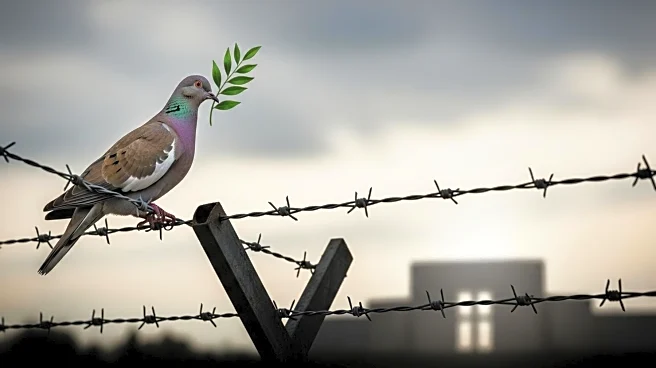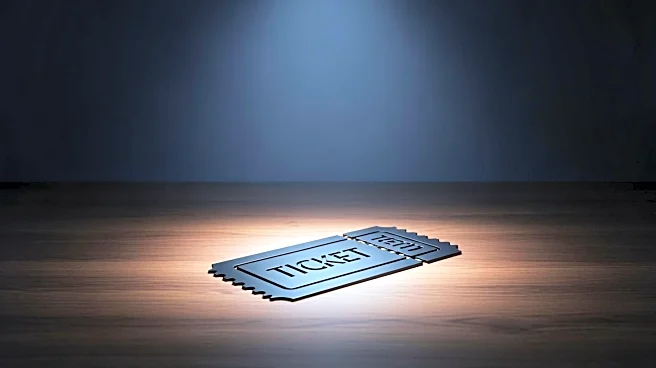What's Happening?
Tens of thousands of Israeli protesters staged a 'day of disruption' across the country, demanding an end to the war in Gaza and urging Prime Minister Benjamin Netanyahu to agree to a ceasefire. Demonstrations took place in major cities, including Tel Aviv and Jerusalem, where relatives of hostages led marches. The protests coincided with a cabinet meeting discussing the war, amid global outrage over a recent hospital strike that killed 20 people. Despite calls for a ceasefire, Netanyahu has maintained that military force is necessary to protect Israel's security and pressure Hamas to release hostages.
Why It's Important?
The protests reflect growing public discontent with the government's handling of the conflict and the humanitarian impact on Gaza. The demonstrations highlight the societal and economic toll of the prolonged war, as well as the pressure on Netanyahu from both domestic and international fronts. The situation underscores the complexities of achieving peace and the challenges faced by leaders in balancing security concerns with humanitarian needs.
What's Next?
The protests may increase pressure on the Israeli government to reconsider its military strategy and engage in negotiations for a ceasefire. The international community may intensify calls for a resolution to the conflict, with potential diplomatic interventions. The situation remains dynamic, with potential shifts in public opinion and government policy.
Beyond the Headlines
The protests raise questions about the role of civil society in influencing government policy and the ethical considerations of military actions. The situation highlights the importance of public engagement and advocacy in shaping political decisions.









